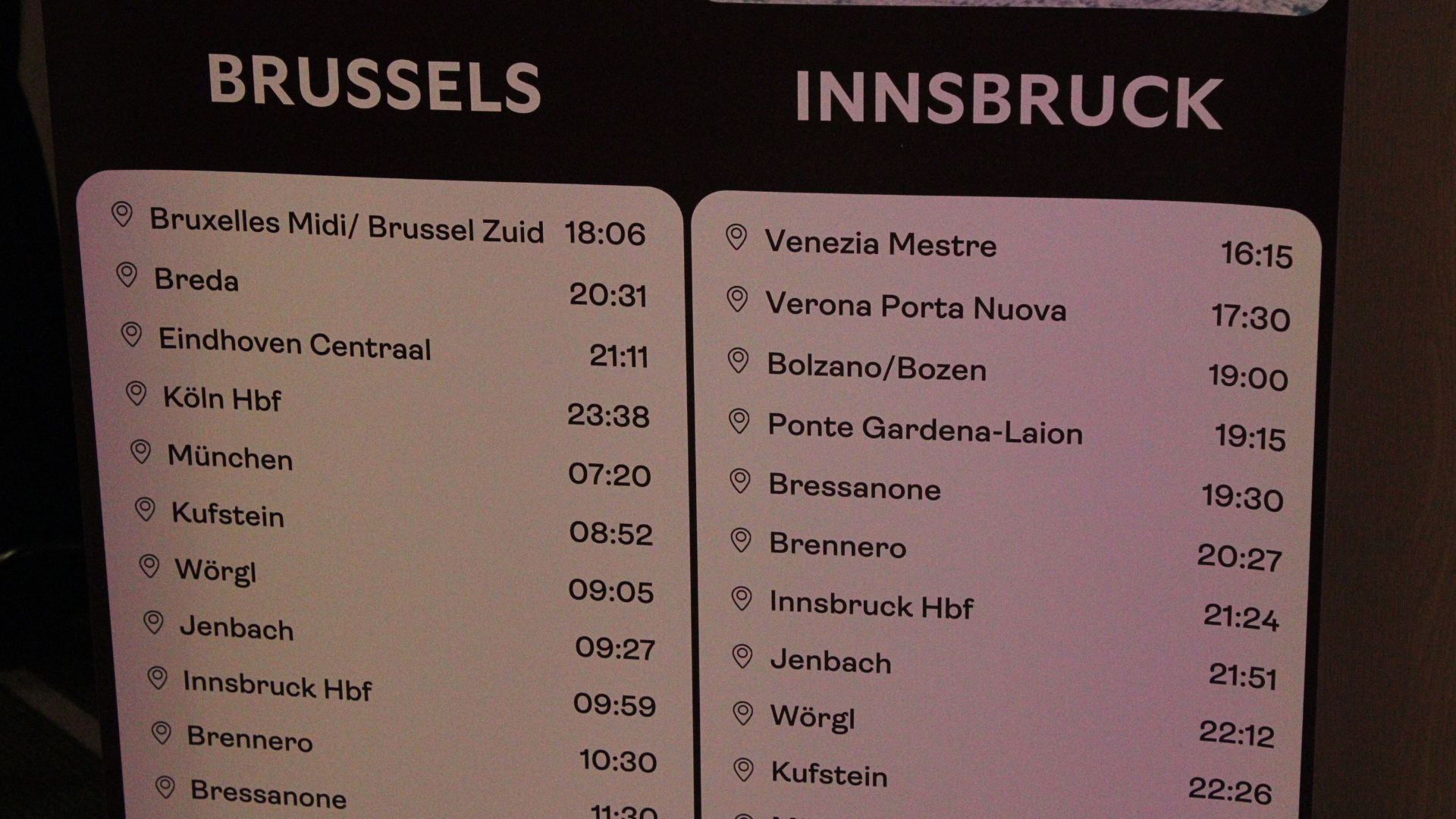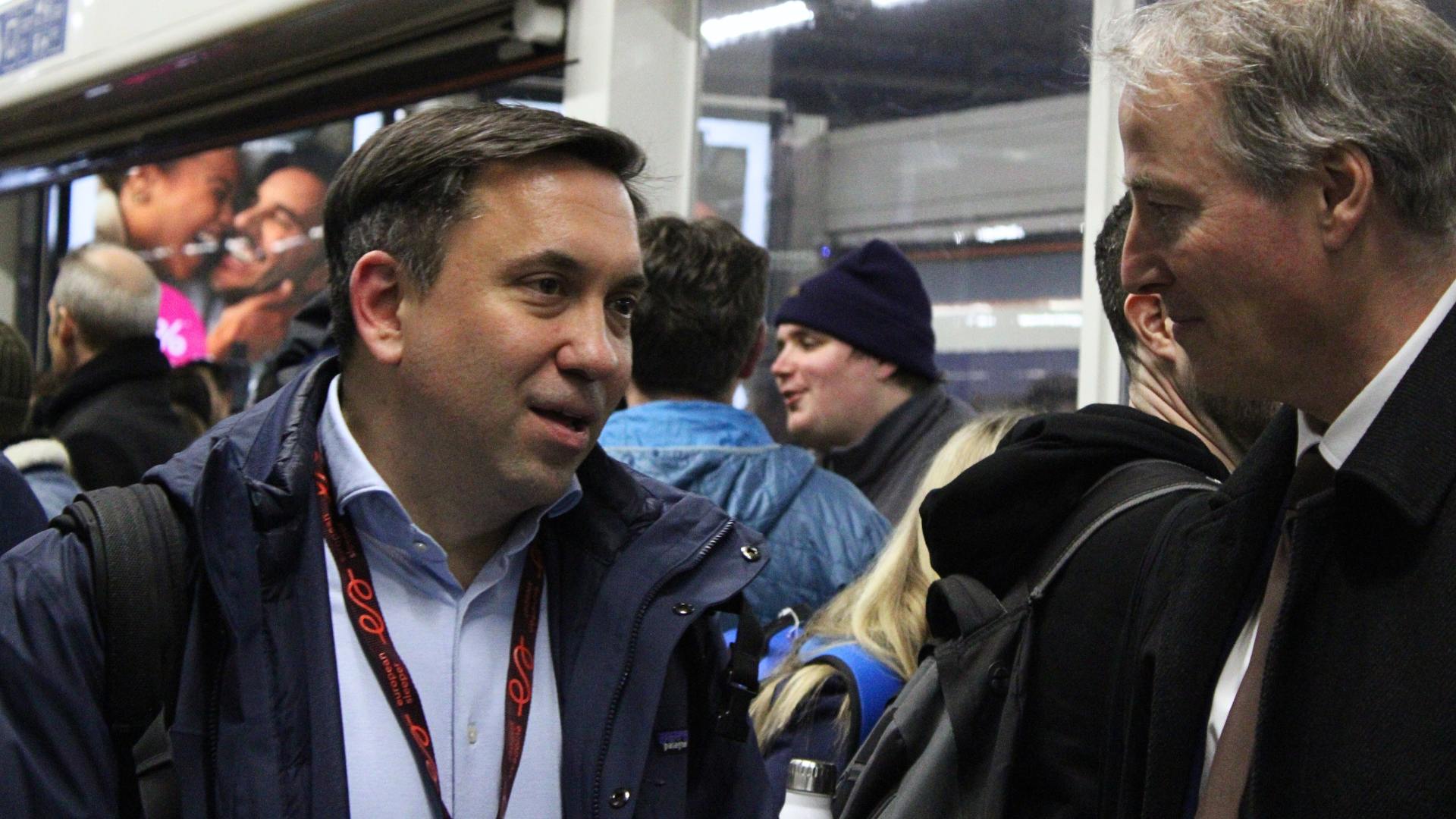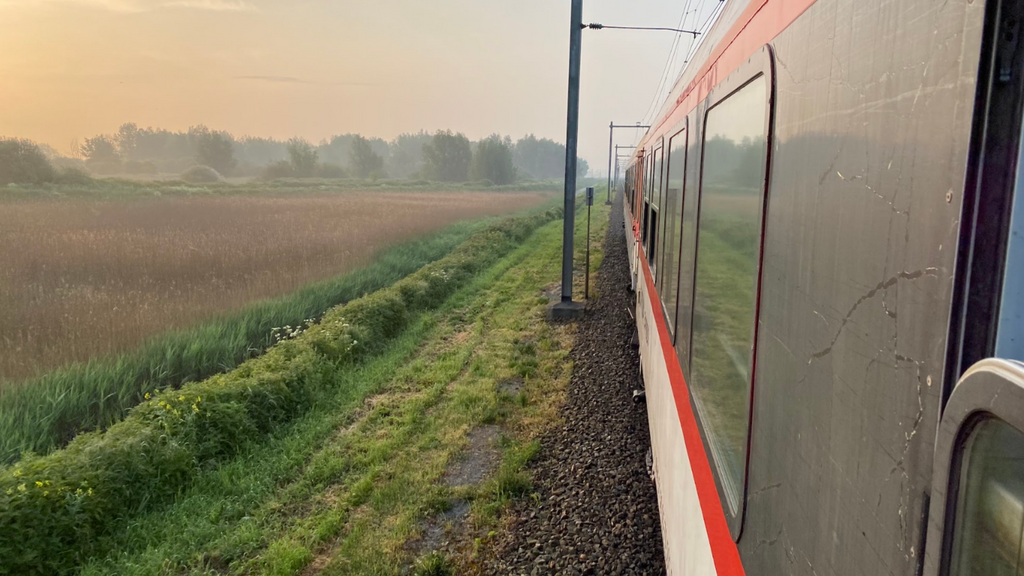Passengers boarded an inaugural night train this week, due to run from Belgium to Italy. However, a hiccup in the plans derailed the launch of the service. Such unexpected shifts in the gears are archetypal of train travel, forming obstacles on the track to a golden era for rail.
Dutch company European Sleeper, which already operates a night train service from Brussels to Prague, recently announced its direct night service to Venice with great fanfare. The first new night train departed on Wednesday evening, marking the start of a two-month pilot period. It will operate twice weekly for six return journeys during this time.
"Some of the trains are almost completely fully booked," European Sleeper co-founder Elmer van Buuren told The Brussels Times. "We are only doing six rides, so it's a very small project. But sales indicate that demand is high for something completely new."
The service is indeed meeting demand for direct night train connections: the online platform Trainline reported a 147% rise in overnight train bookings between 2019 and 2023.
The service is also filling a gap in the market. There is currently no other direct train from Belgium to Italy, nor between the Ruhr region in Germany and Tirol, "even though the connection is in great demand."

The timetable for the European Sleeper from Brussels to Venice. Credit: The Brussels Times
Despite this momentum, the launch started on the wrong foot. The train was not given the green light to enter Italy, meaning the first passengers had to disembark in Innsbruck (Austria) and cross the border on another train. As co-founder Chris Engelsman joked, train travel is all about expecting the unexpected.
A challenging journey
European Sleeper aims to continue running the service after the initial pilot period. "My sights are set on connecting Western Europe to all kinds of destinations," van Buuren said. "In the next 20 years, I would like to see European Sleeper build a network of night trains from five different hubs, running five to eight lines."
But putting this into practice is complex. European Sleeper's Amsterdam-Barcelona service, for example, was originally planned for 2025. However, it has now been pushed back to 2026 – and may even be extended to 2027.
One barrier is the lack of coordinated train timetables across Europe. European Sleeper had to contact infrastructure managers in Belgium, the Netherlands, Germany, Austria and Italy to ensure the timetables aligned and the train could stop at the various stations as scheduled alongside domestic trains.

European Sleeper's Elmer van Buuren. Credit: The Brussels Times
The company is also struggling to find the right rolling stock. "We have to find a solution of buying new trains or second-hand trains to rebuild. Until then, we cannot build the network as we want to," van Buuren said.
This all ties into the broader problem of financing. From the outset, a night train – which only runs once a day – is much less economically viable than a traditional train, which can run several times a day and does not need expensive sleeping cabins.
There are three key elements to this issue: financing, capacity and selling tickets. "We started purely through crowdfunding, but our real income comes from transporting passengers," van Buuren said.
Belgium paving the way
When it comes to supporting cross-border railway travel and night trains, Belgium is a frontrunner in many ways. "The country is really pushing for night trains," Thomas de Béthune, the head of the representation of the European Commission in Belgium, told The Brussels Times.
Under former Mobility Minister Georges Gilkinet (Ecolo), Belgium was the first European country to provide financial support to night train operators with at least one stop in Belgium. The country bore the rail infrastructure fee, as well as the cost of transport, distribution and supply of traction power for eligible operators in Belgium.
National railway operator SNCB also now sells European Sleeper tickets, unlike its Dutch and German counterparts Nederlandse Spoorwegen and Deutsche Bahn.

People waiting on the platform at Brussels-Midi for the European Sleeper to arrive. Credit: The Brussels Times
Moreover, Belgium has launched some 40 projects in the past decade to build the Trans-European Network. "This helped expand the grid of connections, laying down suitable tracks to ensure international and night trains could pass through the country," said de Béthune.
This enabled Belgium to claim its position as an international train hub: passengers can now embark on trains here travelling directly to Berlin, Prague, Vienna and (temporarily) Verona and Venice.
Commitments have also been made by the new Federal Government for the coming years. "The government agreement will remove any technical and regulatory obstacles to night train development," new Mobility Minister Jean-Luc Crucke (Les Engagés) confirmed to The Brussels Times.
Long road ahead
Despite these trials, European Sleeper has been around for some 4.5 years. "But if we want to stay afloat as a company, we need to find solutions to these issues."
While many point the finger at the European Union to solve them, he argued that it has already done its work. "Europe has established a framework of laws and measures to make railway expansion possible. Now, Member States must decide on infrastructure investments and manage the infrastructure operators better so they can coordinate across borders."
Van Buuren believes that, when it comes to demand and attention, the continent finds itself in a golden era for railway travel. "But in terms of implementation, we are not there yet. Improvements still need to be made. In the meantime, we will continue to show that this is possible and explain what is needed."

